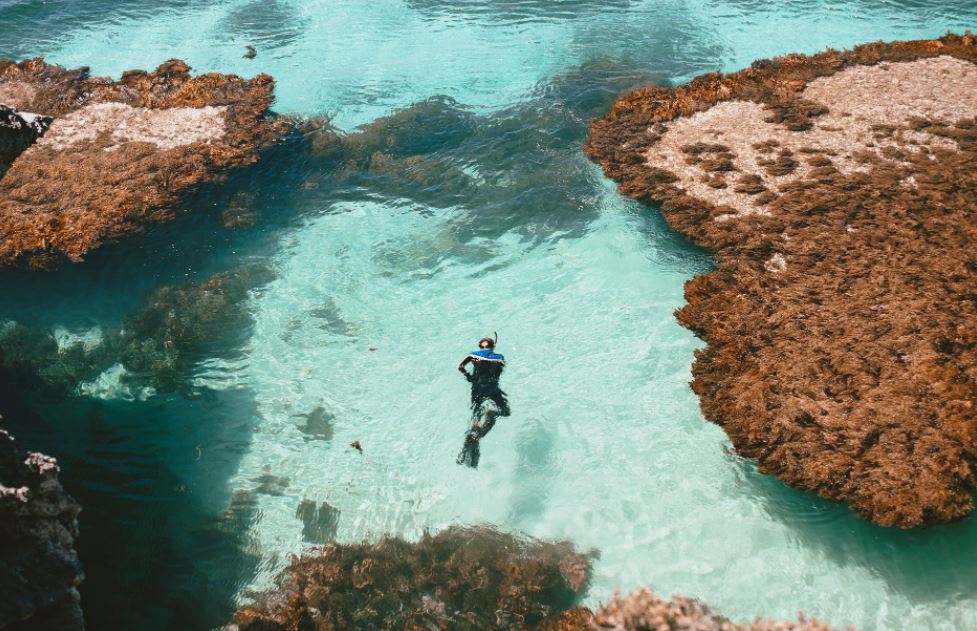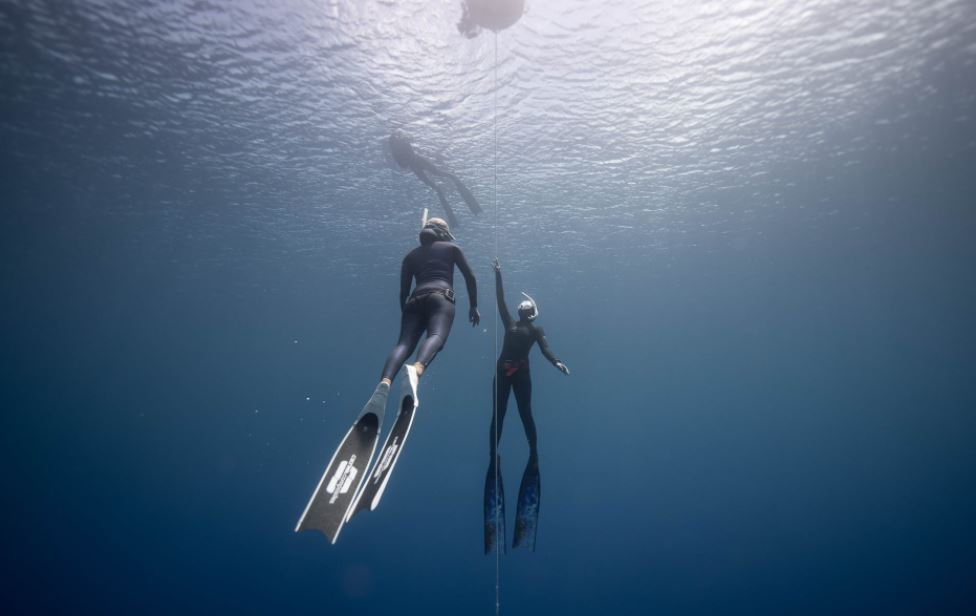Divers, swimmers, and surfers who tread in cold water typically wear wetsuits. When you think of a wetsuit, the first thing that comes to mind is probably trying to stay warm while swimming in chilly water. After all, that is why they were created.
The average wetsuit is intended to keep you warm while submerged in water ranging in temperature from 50 to 70 degrees depending on thickness and style. However, numerous other advantages to wearing a wetsuit are often overlooked.
So, why do people wear wetsuits?
Why People Wear Wetsuits
Just like wearing goggles to protect your eyes while bodyboarding, wetsuits on the other hand either insulate or help swimmers retain body heat. As a result, the swimmers are less likely to suffer from hypothermia, a critically low body temperature. However, the advantages of wearing a wetsuit extend far beyond temperature.
For Peace of Mind
There’s no denying that swimming can be intimidating for some, but it shouldn’t be. The main reason why everybody needs a wetsuit is for peace of mind. A wetsuit offers numerous benefits that contribute to safety, such as buoyancy and warmth.
Although many of these advantages are discussed in greater detail below, let’s keep it simple for now: a wetsuit allows for a safer swim. One advantage of wetsuits is that they can reduce stress and assist you in performing better. It’s pointless to worry about the swim when you confront it with safety in mind.
Knowing that the wetsuit will keep your body at a very safe temperature allows you to concentrate on your performance instead of how you feel. Stressing about your body temperature and comfort can make it difficult to get excited about the activity ahead of you. A wetsuit can eliminate this risk, especially if you find the ideal wetsuit for you.
Furthermore, simply being aware of all the other advantages of wetsuits aside from warmth will make you feel safer every time you enter the water. That’s why you see folks swimming in wetsuits even when the water isn’t cold.
Ensures Buoyancy
A significant advantage of wearing a wetsuit is that it allows you to float more easily. Because of neoprene’s natural buoyancy, you sit higher in the water than you might without a wetsuit. That means a less difficult swim with much less resistance.
This is especially important for triathletes searching for any competitive advantage they can get to shave time. That is why wetsuits are commonly seen on swimmers in warmer water. Their wetsuit may aid the athlete in conserving energy in the swim portion of the race, which they can then spend in other parts of the race.
Enhances Speed
Another advantage of wetsuits is the use of “skins,” or outer coatings, to cover the suit’s exterior. They are designed to repel water, allowing you to glide through the water more easily and quickly.
The outer coating is “Super Composite Skin,” or SCS. Advances in this technology are pushing the boundaries of what wetsuits can do these days. According to some scientists, the SCS on a wetsuit can reduce resistance in the water by about 15%.
Professional swimmers claim that the right wetsuit can save you 5-10% of your time, depending on the swim’s distance. You should note that this type of skin is only found in open-water or triathlon swim-specific wetsuits, not in general watersports wetsuits.
Boosts Confidence
Knowing you benefit from increased speed and buoyancy is a great advantage of wetsuits. However, those advantages now provide you with the advantage of increased confidence. A great wetsuit that best fits you keeps you warm while also allowing you to swim faster and easier.
Owning a wetsuit can help you challenge yourself as an athlete and possibly take on swims that are a bit out of your comfort zone. These are the kinds of things athletes require to improve, and if a wetsuit can provide them, we recommend taking full advantage.
Improved Compression
A wetsuit functions by tightly trapping a thin layer of water between the suit and your skin. Your body temperature heats the water to 98 degrees Fahrenheit, keeping you warm. The warmer the suit, the tighter it is.
However, another advantage of wearing a wetsuit is that it can supply automatic compression to joints and muscles, allowing you to perform longer and better. While running, wearing a wetsuit can feel like sporting a compression sleeve over your knee.
When you put on a wetsuit, your whole body feels tighter and more prepared to perform. This wetsuit advantage can also help you take more action as a surfer or swimmer, making you much better at the sport in the long run.
It Gains Them Respect
One final advantage of wetsuits is how you appear when wearing one. In most cases, people wearing wetsuits send a clear message that they are serious about their sports. This can earn you some respect from other members of the sporting communities you participate in.
This could also lead to new friendships, conversations, and opportunities to learn more about the sport, resulting in more fun!
When Should You Wear a Wetsuit?
So you understand why people wear wetsuits, but when do you need one? There are a few situations in which you should wear a wetsuit. To begin with, a wetsuit is an absolute must if your event will take place in colder climates, colder water, or at higher altitudes.
Also, if the swim is longer than 100 yards, we strongly advise wearing a wetsuit. Several factors, including those listed above, contribute to the need for a wetsuit in long-distance swims, but the three most important are buoyancy, safety, and hydrodynamics.
Is a Wetsuit Required to Surf?
In a nutshell, it isn’t. Surfing clothing options include board shorts, jammers, swimsuits, wetsuits, drysuits, etc. The essential aspects are that you are self-assured, comfortable, and dressed appropriately for the water temperature. (This is also the same for wearing a wetsuit to snorkel.)
Wetsuits are an ideal buy for surfers of all ages and abilities. Here are the advantages and disadvantages of surfing in a wetsuit:
Pros
- can help you float
- keep you warm in cold water
- absorb some impact when you hit the water
- stay on even if you fall off your board
- look great on many body types
- can help with floating
Cons
- can be costly
- when wearing wetsuits, some people develop rashes
- not easy to put on and take off quickly
- not ideal for swimming
- require special care (no washing machines!)




